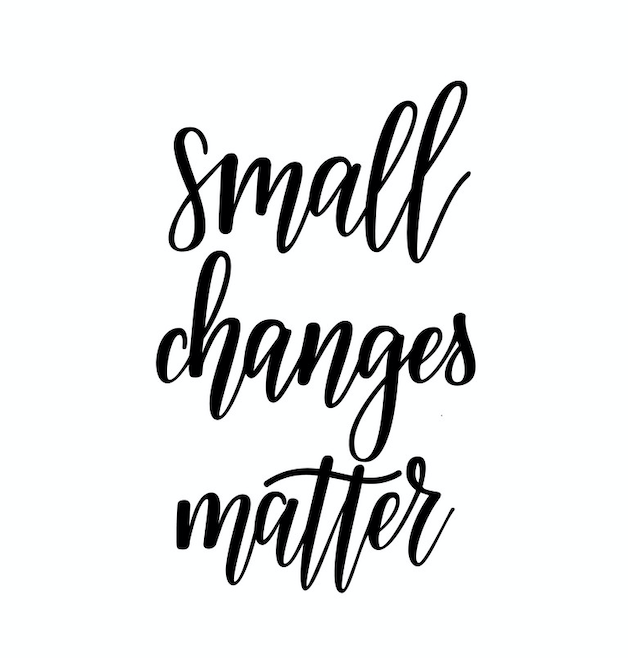Sometimes when starting a new health & fitness routine, we can set really high expectations on ourselves. Our Pinnacle Wellness founder, Emma is an advocate for making smaller sustainable changes to your lifestyle and encourages you to to look at what small improvements you can make everyday that lasts.
How to make small changes to sustain change. There’s no one big fix.
At Pinnacle, we are about supporting our clients to make sustainable changes that last. It’s not a quick fix for us. We all know that Fad diets don’t work long term, and sometimes we can go too hard with exercise, only to fall in a heap, or injure ourselves and go back to a more sedentary lifestyle whether we meant to or not.
It’s about wellbeing. We look at holistic changes, which is why we offer such a range of programs in our clubs as well. And we never want to ask too much of you. We don’t expect you to come to a class, or hit the gym 7 days a week. For most of us, that’s just not realistic. Think about what you can commit to consistently and focus on that. If that’s twice per week, that’s great. It’s the consistency that help you to see results, not a fluctuation of 5 days, then nothing for 2 weeks.
For exercise consistency, it’s also about finding what you enjoy, and will therefore be able to stick to long term. When it comes to exercise, one of the most important things that people fail to understand is that we are all different; and one form of exercise that works for us may not work for you, both from an enjoyment perspective as well as the health benefits it shares.
Exercise is of course just one aspect of wellbeing. Your emotional/mental and nutrition are also elements we encourage you to reflect on and aim for change. Below are a list of some suggested ways you can start to do this:
Take on the mantra of ‘Kaizen’ – to make a small improvement every day. Over time this can add up. Set big goals, and then break them down into small goals that you can achieve each week/month.
Allow flexibility without guilt – think about food/alcohol as sometimes food, not ‘bad’ food. That way when you enjoy some dessert on a Saturday night, or a glass of wine while out to dinner with friends, you know it’s just a sometimes food and enjoy, and don’t beat yourself up over it. Carry back on with your ‘all the time’ food and drink the next day
Think about eating more of what you know you should, rather than cutting food out. For example, try eating more green vegetables and fruit each day.
If you’re a coffee drinker, think about reducing or eliminating sugar in your coffee, and if you like milky coffee, try alternating with tea instead. This will not only hydrate you but reduce the added calories milk provides.
Add meditation into your day. Find an app that has a short 10 minute meditation session to start with. Body scans are great for relaxation. And then make a conscious effort to stop and listen to this at least once a day, anytime in the day you can sit and spare 10 minutes. On some days, this may end up being just before you go to bed. And that’s ok. Within 2 weeks you will notice a difference, you won’t react to situations in a panic, your outlook will be more positive, you’ll have more patience, your body will hold a more relaxed state of being, and your blood pressure will lower.
If you have a partner, and / or kids, make a schedule with them that is fair for all involved. And then keep each other accountable to that. E.g. My husband and I know which morning is my workout mornings, and which are his. Prioritising it will make you a better partner, mother, father, friend, etc. If you’re a single parent, and finding time away is too challenging, incorporate your child/children into your exercises. Get in the outdoors for a walk, or go to the park and workout with them or while they play with a ball.’
Book into classes, or meet a friend for a gym workout. If someone is expecting you, you’ll be more likely to avoid making excuses and go!
Finally, for any change to be sustainable, you need to understand your why. For example, do you want to be a good role model for your kids, perhaps you’ve been threatened with diabetes by your doctor, or perhaps you’re feeling lethargic, unhappy and unmotivated and you want that to change.
Go easy on yourself and take it slow. Try making one to two changes each week, you don’t need to change everything overnight. It’s about where you’re at in a month, two months or 12 months time that’s important.
Emma x


